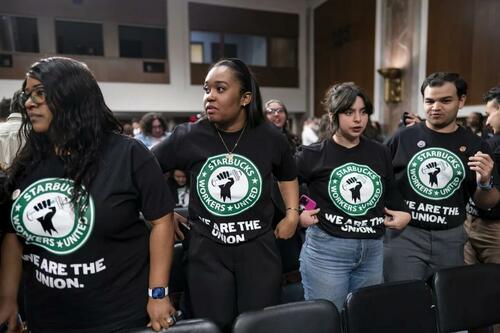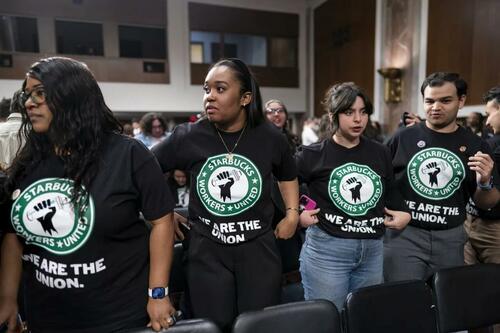Supreme Court Gives Starbucks Unanimous Win In Labor Dispute
The Supreme Court sided with Starbucks on Thursday in a labor dispute over reinstating workers.

In a unanimous vote, the Justices rejected a lower court ruling approving an injunction by the National Labor Relations Board (NLRB) which would have required the company to reinstate seven workers who were fired for trying to unionize – and brought a television crew into the store to broadcast their effort.
The 9-0 opinion in Starbucks Corp. v. McKinney was written by Justice Clarence Thomas, and found that the plaintiffs were bound by the traditional four-factor test for preliminary injunctions – which requires that they show a likelihood of success on the merits, likelihood of irreparable harm without the injunction, a favorable balance of equities, and that the injunction serves the public interest.
The court rejected the lower court’s more lenient „reasonable cause to believe” standard, which makes it easier to obtain preliminary injunctions.
„There is an obvious difference between having the Board show that it is ‘likely’ to succeed on the merits and having it show only that its theory of the case is ‘substantial and not frivolous,’ without having to convince the court that its theory is likely meritorious,” read Thomas’ opinion. „In fact, it is hard to imagine how the Board could lose under the reasonable-cause test if courts deferentially ask only whether the Board offered a minimally plausible legal theory, while ignoring conflicting law or facts.„
Those supporting Starbucks’ position include the New Civil Liberties Alliance, which said in a statement: „Many federal courts have improperly deferred to NLRB’s litigating positions for decades, allowing the agency to punish businesses with costly injunctions even if the preponderance of evidence indicates no wrongdoing occurred,” adding „Today, the Supreme Court corrects this injustice and reminds lower courts that their obligation to exercise independent judgment precludes them from taking the easy way out by deferring to agencies.”
Tyler Durden
Thu, 06/13/2024 – 13:45


